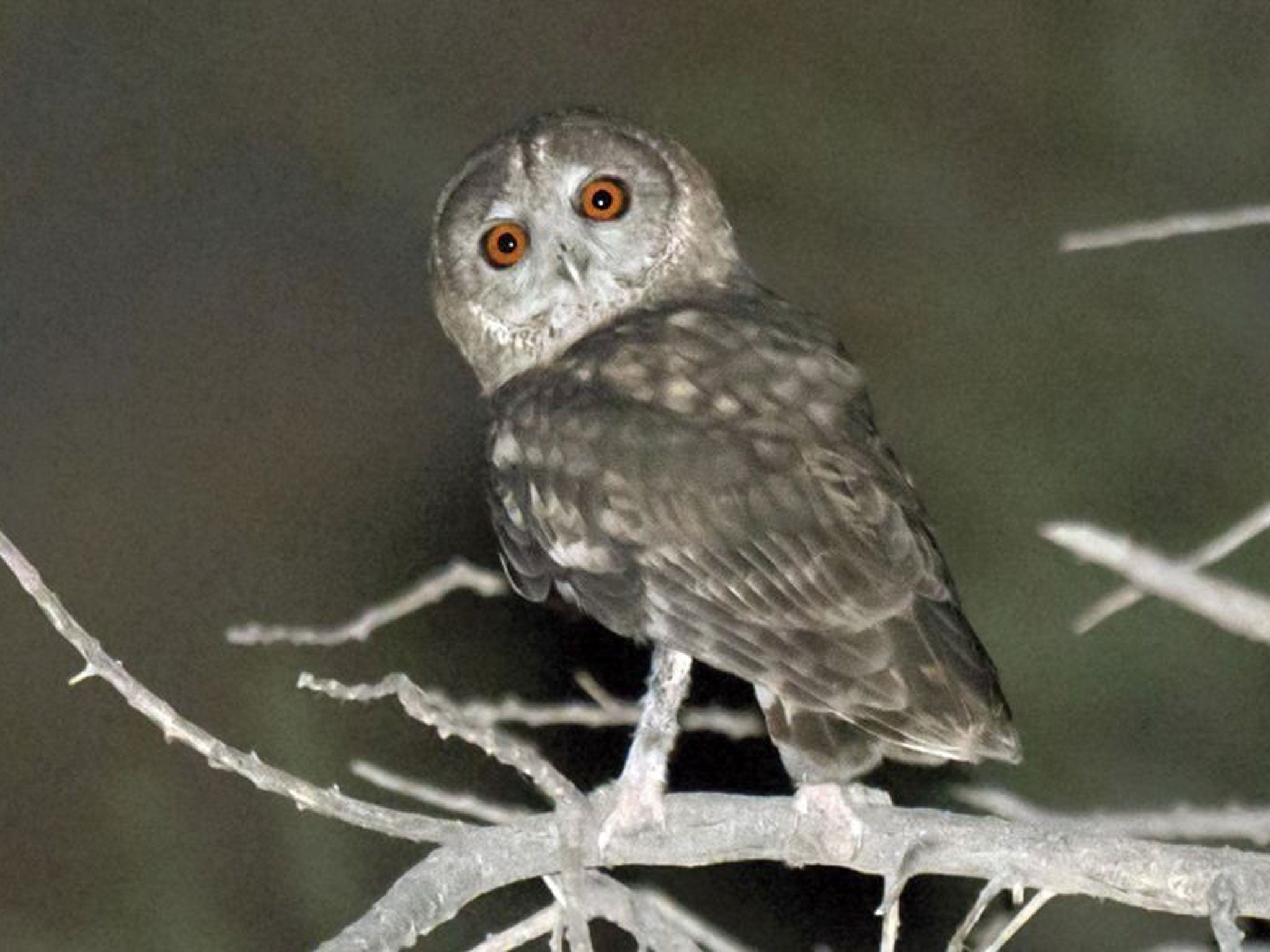'Like nothing we had seen before': New species of owl discovered
A British ornithologist working in Oman was able to track the unfamiliar hoots of a bird previously unknown to science
A British ornithologist and his team have discovered a completely new species of owl while on a research expedition in Oman.
The bird, previously unknown to science, is slightly bigger than a tawny owl and has been named the Omani Owl.
It was first spotted in a remote mountainous region of the Middle Eastern country while sound-recordist and author Magnus Robb, 43, formerly from Edinburgh, was studying another species in March.
Mr Robb said he and his team were recording the Arabian owl, which he knows well, when he noticed “faint owl-like hooting in the background with a rhythm I had never heard before”.
The expert was so struck by the sound that he immediately phoned a colleague and said: “I think I’ve just discovered a new species of owl.”
“My colleague Rene Pop and I tried in vain to find the mystery bird again the next night, but it was only on the last night of our trip that we heard it again,” Mr Robb said. “We had to leave for the airport with the unseen owl hooting up on a cliff.”
He returned a month later, accompanied by colleague Arnoud B van den Berg.
Mr Robb said: “Tracking it down again wasn't easy. This owl inhabits vertical terrain and its voice is difficult to hear. Worse still, in April the bird was virtually silent. Eventually we heard one. What a relief to actually glimpse it perched on a rock, confirming that this was indeed an owl and looked like nothing we had seen before.”
Over the course of the next months the team made another two research trips to look for new specimens, gather photographs and sound recordings, and observe the owls’ behaviour.
After critical analysis, they concluded this was indeed a new owl for science, and the first bird species to be discovered in Arabia for 77 years.
Details of its discovery were published today in the ornithological journal Dutch Birding.
Mr Robb’s work is part of an international project called the Sound Approach, which aims to catalogue bird sounds with a view to better understanding them.
And he told the BBC that he and his colleagues had undertaken such rapid and extensive study of the Omani Owl so that it could be made a candidate for conservation projects as soon as possible.
“One of the reasons we've gone through this process of describing and confirming this as a new species so quickly is to get conservation for this owl as soon as possible,“ he said.
“Conservation can only start when this species is accepted and given some official status.”
He said he wants to return to Oman later this year to discover more about the owl, its habitat and its behaviour.
So far, he and and his colleagues have found only seven of the birds in a single wadi in the remote, mountainous area of the country which, he said, “suggests that it’s a very rare creature indeed”.

Join our commenting forum
Join thought-provoking conversations, follow other Independent readers and see their replies
Comments
Bookmark popover
Removed from bookmarks